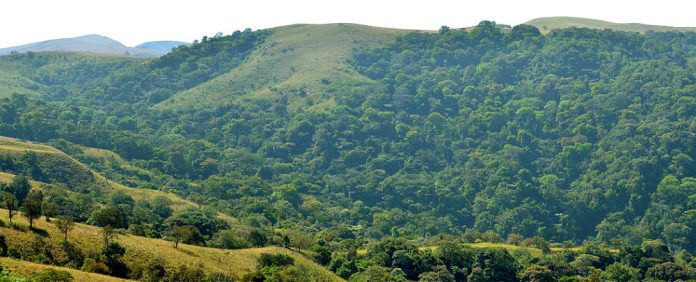Attention has again been called to the devastating effect of the indiscriminate felling of trees and its attendant contributions to the challenge of climate change.
In Nigeria, reckless tree-felling and its effect on the climate has become more manifest in the rate of desertification in the North, gully erosion in the East, flooding in the West and loss of vegetation cover in the South.
Again, the pressure for economic development has fueled the exploitation of the forest, a natural cover, resulting in the loss of biodiversity and long-term threats to the ecosystem.
According to research, Nigeria’s forest cover has depleted to less than 10% of the 25% mandated by the Food and Agricultural Organizations (FAO).
Paddy Ezeala, an Environmentalist says Nigeria loses about 4% of its forests annually, a percentage considered the highest globally and an
estimated 1.5 million trees felled daily through illegal logging, leading to 3.5% deforestation annually.
‘‘There is a need to develop more environmentally and socially equitable approaches to forest management in Nigeria, the wanton destruction of forests across the country must be checked, Ezeala advised.
Research indicates that the rate of forest depletion has tripled mostly in Cross Rivers, Ondo, Ogun and some parts of the North Central States.
The Global Forest Watch records that Cross River lost 10.7 kha of its forest cover to trees felling in 2022, an equivalent of 6.58 Mt emission of CO₂.
Ogun State also lost 7.41 kha of its forest cover to reckless felling of trees, an equivalent of 6.01 Mt of CO₂ emissions while Ondo lost 8.08 kha of its tree cover, equivalent to 6.34 Mt of CO₂ emissions.
The loss of CO₂ experts insist, is the result of all the illegal logging and trees felling across the country.
Ezeala, who is also the Publisher of Development Agenda Magazine at a recent seminar on “Climate Change and COP28’’, noted that the absence of a valuation system on forest resources for adequate compensation when destroyed by individuals or corporate negligence was contributing to the problem.
“Forests perform a broad range of critical environmental and climatic functions, they harbour species and at the same time have very deep economic, aesthetic, industrial and religious significance for humans.
Ezeala noted the need to harness the potential of the forests for the development of eco-tourism and scientific research rather than the continued illegal logging and wildlife trafficking.
‘‘There are animals that can be found only in Nigeria. Such as the Ibadan malimbe, Anambra waxbill, Jos indigo bird, white-throated monkey (Cercopithecus erythrogaster pococki), Niger Delta pygmy hippo and Niger Delta red colobus monkey.
“The question is, what has been done to protect, harness and develop these natural endowments? We should be able to fashion a sustainable development strategy that ensures the prosperity of humans while living in a way that synchronises with the natural environment’’.
To protect the forests and natural habitats and improve biodiversity, the expert called for the prioritization of trees, planting more of them and securing as many green areas as possible.
Share your story or advertise with us: Whatsapp: +2347068606071 Email: info@newspotng.com











